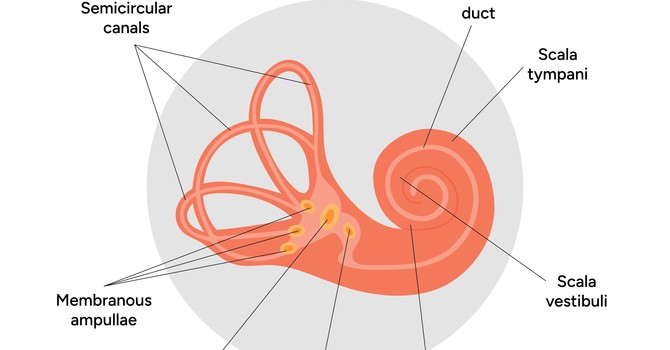
What is Functional Neurology?
Functional Neurology is a branch of healthcare that focuses on understanding and treating neurological disorders by examining and addressing how the brain, spinal cord, and nervous system function as a whole. It is based on the concept that the brain and nervous system have the ability to change and adapt (neuroplasticity), and therapeutic interventions can help restore proper function by stimulating or retraining underperforming areas of the brain and nervous system.
Unlike traditional neurology, which often focuses on diagnosing and treating neurological conditions based on disease classification (such as Parkinson's disease or multiple sclerosis), functional neurology seeks to evaluate and optimize the function of the nervous system, even in the absence of clear disease markers.
Timeline and Origins of Functional Neurology
Functional neurology as a distinct discipline emerged in the late 20th century. Its roots lie in several interrelated fields, including chiropractic care, neurophysiology, and rehabilitative medicine. The concept evolved alongside advancements in neuroplasticity and a growing understanding of how the brain can reorganize itself following injury or dysfunction.
-
Early Foundations: The field grew out of chiropractic neurology, with chiropractors in the mid-1900s beginning to explore the brain’s role in health and disease. The importance of the brain’s connection to physical function and how spinal health impacted neurological well-being.
-
Modern Development: Functional neurology began to take a more defined shape in the 1980s and 1990s as research into neuroplasticity and neuroscience advanced. Professionals from various disciplines, including chiropractors, physical therapists, and rehabilitation specialists, began integrating neurophysiological concepts with hands-on treatments aimed at restoring optimal brain function.
Who Created Functional Neurology?
There isn’t a single individual credited with "creating" functional neurology, as it is an evolving interdisciplinary field. However, the modern practice of functional neurology can be traced back to chiropractors who integrated neurological rehabilitation with chiropractic care. Some influential figures in the development of functional neurology include:
-
Dr. Ted Carrick: A key figure in the development of functional neurology, Dr. Carrick is credited with creating structured protocols for neurological rehabilitation, particularly for concussion and traumatic brain injuries.
What Forms of Medicine Practice Functional Neurology?
Functional neurology is practiced within a variety of healthcare disciplines, including:
-
Chiropractic Care: Many functional neurologists are chiropractors with advanced training in neurology, specializing in treating neurological dysfunctions related to spinal health and brain function.
-
Physical Therapy and Rehabilitation: Physical therapists trained in functional neurology focus on rehabilitating brain and nervous system function, particularly after traumatic brain injuries, strokes, or other neurological issues.
-
Integrative and Functional Medicine: Practitioners in integrative medicine may use functional neurology techniques alongside other treatments such as nutrition therapy, lifestyle modifications, and mind-body therapies to address neurological issues from a holistic perspective.
-
Neuropsychology: Some neuropsychologists integrate functional neurology principles to assess and treat cognitive dysfunction, attention deficits, and memory problems by targeting brain function and neuroplasticity.
What Can Functional Neurology Help With?
Functional neurology can address a wide range of conditions related to the brain and nervous system, including:
-
Traumatic Brain Injuries (TBI) and Concussions: Functional neurology is especially effective for post-concussion syndrome, helping to manage lingering symptoms like dizziness, headaches, balance problems, and cognitive issues.
-
Chronic Pain: Conditions like fibromyalgia or chronic headaches may benefit from functional neurology interventions that target the brain’s pain processing pathways.
-
Balance and Coordination Disorders: Functional neurology can help patients with vestibular disorders, such as vertigo or BPPV (benign paroxysmal positional vertigo), through specific vestibular rehabilitation techniques.
-
Neurodevelopmental Disorders: Conditions such as ADHD, autism spectrum disorders, and learning disabilities can benefit from functional neurology, which targets brain regions involved in attention, sensory processing, and motor coordination.
-
Dysautonomia: Disorders involving autonomic nervous system dysfunction, such as POTS (Postural Orthostatic Tachycardia Syndrome), can be managed by enhancing autonomic regulation through specific exercises and therapies.
-
Stroke Rehabilitation: Functional neurology can play a significant role in post-stroke recovery by stimulating neuroplasticity and helping the brain regain lost function through targeted therapies.
-
Cognitive Decline and Memory Issues: In cases of dementia, Alzheimer’s disease, or general cognitive decline, functional neurology therapies can stimulate brain areas responsible for memory, learning, and executive function.
-
Motor Disorders: Parkinson's disease, multiple sclerosis, and other movement disorders can benefit from functional neurology through therapies designed to improve motor control and coordination.
Conclusion
Functional neurology offers a dynamic, non-invasive approach to treating neurological disorders by leveraging the brain’s capacity to adapt and heal. It utilizes a variety of methods—such as vestibular therapy, eye movement training, balance exercises, and autonomic regulation techniques—to help patients improve brain function and overall quality of life. It is practiced by a variety of healthcare providers, most notably chiropractors, physical therapists, and neurologists, and is used to address a wide range of neurological conditions.
Forrest Fisher
Contact Me


